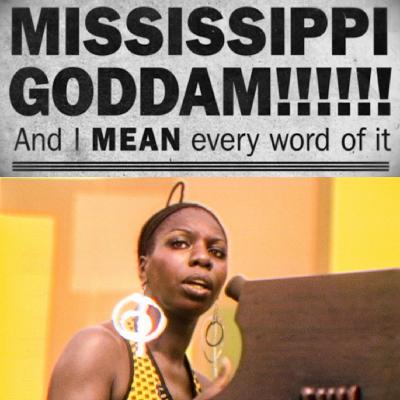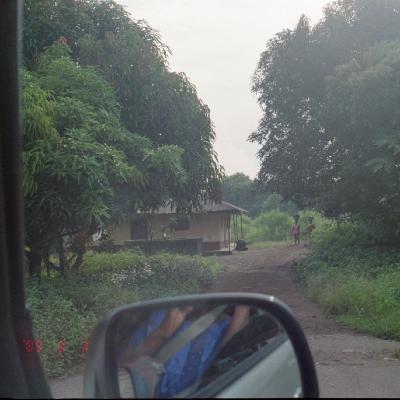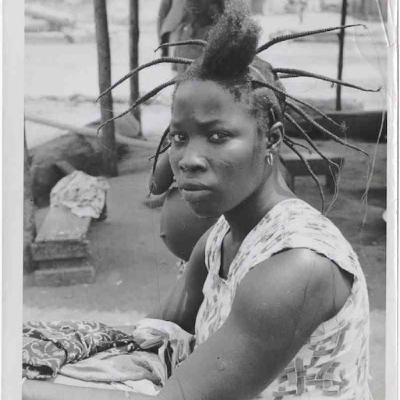Discover Threadings.
Threadings.

 Threadings.
Threadings.
Author: Ismatu Gwendolyn
Subscribed: 89Played: 1,002Subscribe
Share
© Ismatu Gwendolyn
Description
ismatu gwendolyn seeks revolution as an inevitable fact of life rather than some hopeful, distant maybe. In doing so, they necessarily investigate what must differ about our day to day. What systems must topple? Where can we begin to rebuild even before that happens? How do I go about loving my neighbors— the people literally next door to me? Who can I learn from? Where have we been before? Where are we going?
64 Episodes
Reverse
having the most delicious caramel pu'erh.
In which ismatu gwendolyn, public servant, recounts the praxis they got from their local strippery in regards to the acquisition and distribution of US dollar bills. Full transcript available at https://www.threadings.io/the-strip-club-did-indeed-make-me-bonkers/
In which ismatu Gwendolyn, budding revolutionary, reminds everyone (once again) that their goal is NOT a life where they are individually comfortable! Sign up to support them financially at threadings.io:https://www.threadings.io/the-financial-transparency-meeting-but-i-yell-instead-of-show-graphs/#/portal/signupFill out the resource form in case you have non-momentary skills or supplies you believe to be relevant to their projects. https://www.jotform.com/form/251693630800151Cool. Please stop asking me to focus on my own individual finances. Do you know how good I am at making individual money. What an unnecessarily small life— especially when ACTUAL FOOD SOVEREIGNTY IS ON THE TABLE. Come on now!
Full transcript, as always, available at threadings.io
full transcript at threadings.io
The global working class engages in active revolution as we speak (and here I am to pontificate about it). As I (ismatu, artist, the pen behind these essays) become more powerful in my world-making, where do I go? Will I defect out of the working class and join the rank of capitalists? Or will I stake my personal powers for collective gain?
In which writer and child of immigrants ismatu gwendolyn discusses the systematic deportations of academic immigrants. Beyond debating whether fascism has “taken hold” in the United States… what do you do when you are afraid for yourself? What happens now that plain-clothed “officers” hunt in broad daylight? All transcripts and sources available at threadings.iohttps://www.threadings.io/they-hunt-in-broad-daylight-2/
In which Ismatu Gwendolyn, young revolutionary with a pen in hand, seeks to stake their power with and for The People, rather than utilizing the trust of their masses as a site of endless extraction. Link to essay: Link to video: https://youtu.be/jaEMTluGj5EShow Notes:Twenty Enemies by James Forman twenty enemies james forman.pdfyou've been traumatized into hating reading (and it's making you easier to oppress):Information Anarchy: The Case Against Sponsorships
Midnight musings on Bird Flu, Yahtzee, and the merits of taking a jumping break with your resident one year old. Pour some tea for this one. All essays (transcripts) available at threadings.io
Otherwise entitled, “Everybody wanna be Nina Simone; don’t nobody wanna sing Mississippi Goddam.” In which ismatu gwendolyn, writer and public scholar, unpacks our collective desire for artists that reflect the times (and holds up a persistent and unforgiving mirror).The full transcript can be viewed at threadings.io.
The purpose of the State of the Constituency is to reorient ourselves to who I am (the invisible pen behind all these essays, Ismatu Gwendolyn) what I do, why I do what I do, and how you all affect me. You are also invited to explore what you want from your participation in this ether community. I’m also sitting here with blueberry chamomile lemon tea. God, that's so good. With a little honey. Read the full transcript, and all other essays, at threadings.iohttps://www.threadings.io/state-of-the-constituency-2024/
in which ismatu gwendolyn returns to their stage to talk about what’s keeping them up at night. Transcription available at threadings.io https://www.threadings.io/on-fear/
The strangest part about terminal illness is how often death comes for a peck on the lips and nothing more. A few weeks ago, I flew home to attend my mother's final affairs. Now we sit, smoothies and champagne glasses, watching a movie to spend time together. It's sunny this Tuesday. Here are reflections from Invisible Beauty on Bethann Hardison, from both me and my mother. Jazz of the Episode:Stepping Through The Shadow x Menahan Street BandTryin’ Times x Roberta FlackEstate x Leilo LuttazziSlow and Easy x Speedy WestRainy Day Lady x Menahan Street BandLove And Peace x Quincy JonesRead the full essay at ismatu.substack.com This is a public episode. If you’d like to discuss this with other subscribers or get access to bonus episodes, visit ismatu.substack.com/subscribe
a series of musings nearly entitled, “I am frightened by the way people tire of the world.” I have had a negative amount of desire to write but Toni Morrison said it’s your job to write when evil wishes to distract you so. Here I am, I suppose. The thesis of today’s musings are that we want the fiction of a happy ending more than we want actual liberation. Looking for a transcript, sources and links? Read the full work at ismatu.substack.com. Selected Jazz of the Episode:Muziqa heywete x Getatchew MekuryaAfternoon of a Swan x Speedy WestHOW CAN WE MEND A BROKEN HEART x Kahil El’ZabarLove and Peace x Quincy JonesA Taste of Honey x Andy Bey, The Bey SistersBetter Than x Lake Street DriveSoul Serenade x Aretha FranklinLa notte muore (orchestra) x Sandro BrugnoliniSweet Leilani x Les Paul & His Trio This is a public episode. If you’d like to discuss this with other subscribers or get access to bonus episodes, visit ismatu.substack.com/subscribe
Questions for your consideration: how do I appreciate you well for taking part in this space? And, how best can we a public good? Please whatever comment features you have available and let me know!ft. Afternoon of a Swan by Speedy West This is a public episode. If you’d like to discuss this with other subscribers or get access to bonus episodes, visit ismatu.substack.com/subscribe
Sleep tips for those who struggle to sleep when they could. Essay (and transcript) available at ismatu.substack.com. This is a public episode. If you’d like to discuss this with other subscribers or get access to bonus episodes, visit ismatu.substack.com/subscribe
A letter written for Bisan, circulated to my constituency: Peace. I write to you from the floor of my bedroom in Sierra Leone. Two days ago, Iran launched successful counter-attacks against the apartheid regime occupying the land of Palestine, currently known as Israel (which bombed their embassy in an open act of war on April 1). I can hear construction workers breaking rocks outside my window and the children of the house playing and running and the noise of Freetown traffic in an endless rise and fall. I always find it pertinent to name the moment clearly, as I am always certain tomorrow will not look like today; the things I consider commonplace will be precious and long gone. Some of my mind firmly plants itself in yesterday already: gone are the days where I can see children running and playing in the street— in any street, anywhere in the world— and I do not think of Palestinian children massacred in front of each other. I am in a permanent after. I kneel to pray and recall accounts of young Sudanese women messaging their local religious leaders, asking if they will still be permitted into paradise if they commit suicide to avoid rape from occupying soldiers. I am in a permanent after.Today is April 15, 2024. Tomorrow will not look like today.Bisan Owda, a filmmaker, journalist and storyteller, has called the world to strike on several occasions for the liberation of her homeland, Palestine. I feel about Bisan (and Hind, and Motaz, and many others) like I feel about my cousins: I pray for them before bed, asking for their continued protection, wondering for them— the same way I prayed for my family as a child, during Sierra Leone’s own neocolonial war of attrition, or when Ebola came like the angel of death. This is the way I pray for Bisan, and for Palestine: with this heart beating in me that is both theirs and mine. She is my age. Bisan! You are my age! I wish we could have met at university, or at an artists workshop; I feel we would have long conversation. I understand more now about what my auntie dequi means when she says sister in the struggle— that’s how she speaks of indigenous womyn, about Palestinian womyn, about womyn across the colonized world that use every tool they have to resist. Sisters in the struggle. It’s never felt like an understatement— I just feel it in my body now. Sisters (n.): someone who you most ardently for. Someone who you care for such that it compels you to action. I’m certain many of you feel this for me—this long distance, cross-cultural, transcontinental kinship. Rhita, a stranger turned friend via instagram DMs, had me over for tea on a long layover in Morocco, and we spent at least two hours talking about blooming revolution and healing through art (she’s a musician and she helps pave the way for musicians in Morocco, who fight for their royalties as well as their right to exist. Brilliant). Sisters in struggle: your lens on the world changes mine, and I am grateful for it. Today we are among war; I mobilize and I organize and I pray for a day where we might sit down for tea.I write to Bisan with the attention of my own constituency to shine light on her calls for a general strike, one of which occurs today, April 15 2024. These urgent asks have been met with lots of skepticism across the Western world: how do we organize something this fast? Does it really matter if I participate? How will one strike solve anything? I write to throw my pen and my circumstance behind you, Bisan. I lend you all (my constituency) my lenses as a teacher, in hopes that I make plain to you why these questions of feasibility assume there is another way out of our current standing oppressions. We have no other option for worldwide liberation that does not include a mass refusal to produce capital. We occupy a crucial moment of pivot as a species. Victory for the masses feels impossible from the complete waste they lay on anyone who dissents to their power. This feeling is manufactured. The hopelessness is manufactured. We see the insecurity of the nation-state everywhere. Never before has surveillance from the state been so totalitarian— even (especially) through the device likely read this on. I also submit: a conglomeration of ruling bodies who monitor their citizens with paranoia do so because they are very aware of their own precarity. ^this is a very good video if you want to learn more about that claim.The nation-state, as it currently exists, knows it will fall. Never before have we had this much access to one another in organizing across the world for our good. They know, and we are beginning to find out, this iteration of the human sovereign world (capitalism ruled by white, Western supremacy) is dying. Something else is on the way. The question is what? Will the world that comes after this one be for us or against us?I hope this set of arguments helps us understand our place in the human narrative, as those that still have the power to stop the machine.Theses:(1) The genocide in Palestine is not unique nor novel except in the fact that we can see it in real time. This is what colonial war has always looked like. Ruthie Wilson Gilmore described the machine perfectly. “Racism, specifically, is the state-sanctioned or extralegal production and exploitation of group-differentiated vulnerability to premature death." ― Ruth Wilson Gilmore, Golden Gulag: Prisons, Surplus, Crisis, and Opposition in Globalizing CaliforniaRuthie Wilson Gilmore is an abolitionist that has radicalized me immensely. To put the above in my terms: racism occurs or made when a group of people (Black, Indigenous, and colonized peoples) are constantly exposed to premature death (in overt ways, such as carpet bombing or slavery, or in more covert ways, like pollution, policy that denies healthcare, poverty wages, restricting access to food). This mass killing comes either with a green light from the state, or comes from the civilian populace of that oppressive nation-state.Capitalism in and of itself created the need for racial oppression. The establishment of capitalism required the open and expedited slaughter of indigenous peoples to secure their own land, and the slow-bred, constant slaughter of African peoples as a vehicle to over-harvest lands across North and South America, as well as across Europe. And they continue to expand.So then: racial capitalism is a death-machine. There is no way we can transition this world to a new order, where the masses are sovereign over our own lives, without withholding the labor that keeps the death machine going. Striking is not just in a decline of consumption, which is when we refuse to consume the products made by the machine. Radical action occurs when we decline production. That’s the only way to stop the machine in their tracks. If we do not, the machine will continue slaughter for output. Simply put: you can’t just stop buying. We do actually have to stop working.Nothing about the actions taking place in the Palestinian genocide are new! This is racial capitalism doing what it has always done: slaughtered the indigenous population and embedded heinous acts of violence to crush dissent, exacted a nation-state on the shallow graves, and found or imported a labor force to exploit such that they can strip the land of her resources. It has always been this horrifying. The only difference now is that we can see the horror live televised, in real time. (2) we are tasked with mobilization from our new understandings. We have a sister war now occurring in Sudan, where the superpower benefitting from violent civilian death is the United Arab Emirates (who extract the gold from Sudan in deals with the warring military groups while the people are slaughtered). This is a war of attrition, designed to break the will of the people bit by bit, massacre by massacre until they force consent to military rule. We had wars of similar depravity in the killings of Iraqis in this made up War on Terror by the United States, in the killings of Black radical counter-insurgents in the United States’ second civil war in the 1960s, in the attempted decimation of Viet Nam (again, by the US, there might be a pattern). This is what I mean about wars of colonialism— this is what the annexing of Hawaii looked like. The fall of Burkina-Faso’s revolutionary government. This is just to name a few. It’s happened again and again, and it will keep happening until we pivot away from allowing the technology of the nation-state be sovereign over the earth. This is what the nation-state does under racial capitalism.(2a) EXTRAPOLATE. The 15th of April 2024 also marks one year of war in Sudan, which has largely been ignored by Western spectacle. I say all the time your attention is lucrative.This particular bit is addressed to my constituency: never is this more clear than watching world trials, UN emergency meetings, world mobilization on behalf of Palestine and no such thing for Sudan. I know that Palestinians do not feel good about this. We should not have to be in a state where we have to compete for attention in order to get justice. We should not require spectacle to mobilize for our countrymen! There are no journalist influencers living in Sudan to have risen out as superstars with moment to moment updates— the technological infrastructure and the political landscape simply didn’t align for that. Is this why we don’t care? I am also hyper aware, as a Black American and as a Sierra Leonean, of how no one blinks when Black people die. We were the original capital under racial capitalism. There still is this sentiment, especially among the Western world, that suffering and dying is just… what we do.We humans are very good at caring for what we can manage to see. I am both heartened and excited by seeing increased conversations, direct actions, fundraisers, for Palestine. The responsibility to the human family is to constantly be in the work of expanding your eyesight— which means that you too care for the
an essay nearly entitled, “the orange trees teach me art-making.” This essay is a continuation of my prolonged look at revolutionary healers in practice to become one— where healing also includes artistry. What is my role as an freedom-minded artist, this side of revolution? Check the link to donate to the universal basic income program for Ebola Survivors in Kenema, Sierra Leone below! https://msha.ke/ismatu Theses: A (art-making) = B(world-making) = C (truth-telling) (1) One of the greatest powers held in the human sovereign world is the power to create and destroy: to make, shape and reshape the world and what we know to be true. I call this world-making. (2) We are currently at war and (I would argue) in the exposition of a new world. (3) This world is still actively being made. What constitutes power in the hands of the masses? What methods of world-making are truly available to us? All sources available at ismatu.substack.com. Jazz of the Episode (sampling):Melancholia x Wynton Marsalis For All We Know x Ahmad Jamal Why, Buzzardman, Why? X Alabaster DePlumeTezeta x Mulatu AstatkeMy Odoh - African Lofi x Lofi Afrobeats This is a public episode. If you’d like to discuss this with other subscribers or get access to bonus episodes, visit ismatu.substack.com/subscribe
captioned live! we took one hour to read four paragraphs together. excerpt from: Conversations with Toni Cade Bambara, edited by Thabiti Lewis. I don’t usually save my lives because (1) that requires editing and I am already drowning in administrative work and (2) I enjoy existing in temporal space for only a moment in time, rather than being replayable and rewatchable and forwardable all the time. it’s a weird thing to watch happen to your personhood. but this one i found to be really lovely and helpful, so here it is. i hope you enjoyyy.correct video transcript available at ismatu.substack.com. This is a public episode. If you’d like to discuss this with other subscribers or get access to bonus episodes, visit ismatu.substack.com/subscribe
In which we engage the following theses: (1) the ruling class benefits from illiteracy.(2) short-form video entertains more than it sticks.(3) reading is a discipline distinct from listening, watching, or other forms of literacy. It’s a skill that needs to be honed separately.(4) Absolutely no one comes to save us but us.Full and accurate transcript available at ismatu.substack.com. Thank you for listening <3Jazz of the Episode:The Jordan River Song x Emahoy Tsege Mariam GebruLena’s Song x The Sweet EnoughsSunset and the Mocking Bird x Duke EllingtonAbusey Junction x KokorokoUdo x The Cavemen.Muziqa heywete x Getatchew MekuryaMogoya x Oumou SangaréDrume Negrita x Andy BeyTony x Larry Morezo, Dennis TiniMelancholia x Wynton MarsalisSpring Yaounde x Wynton Marsalis This is a public episode. If you’d like to discuss this with other subscribers or get access to bonus episodes, visit ismatu.substack.com/subscribe


![a letter on metacognition [ft. a social experiment] a letter on metacognition [ft. a social experiment]](https://media.redcircle.com/images/2025/8/27/0/c3f1f156-2697-443c-a89c-33a0fffbdd79_threadings_artwork_updated.jpg)
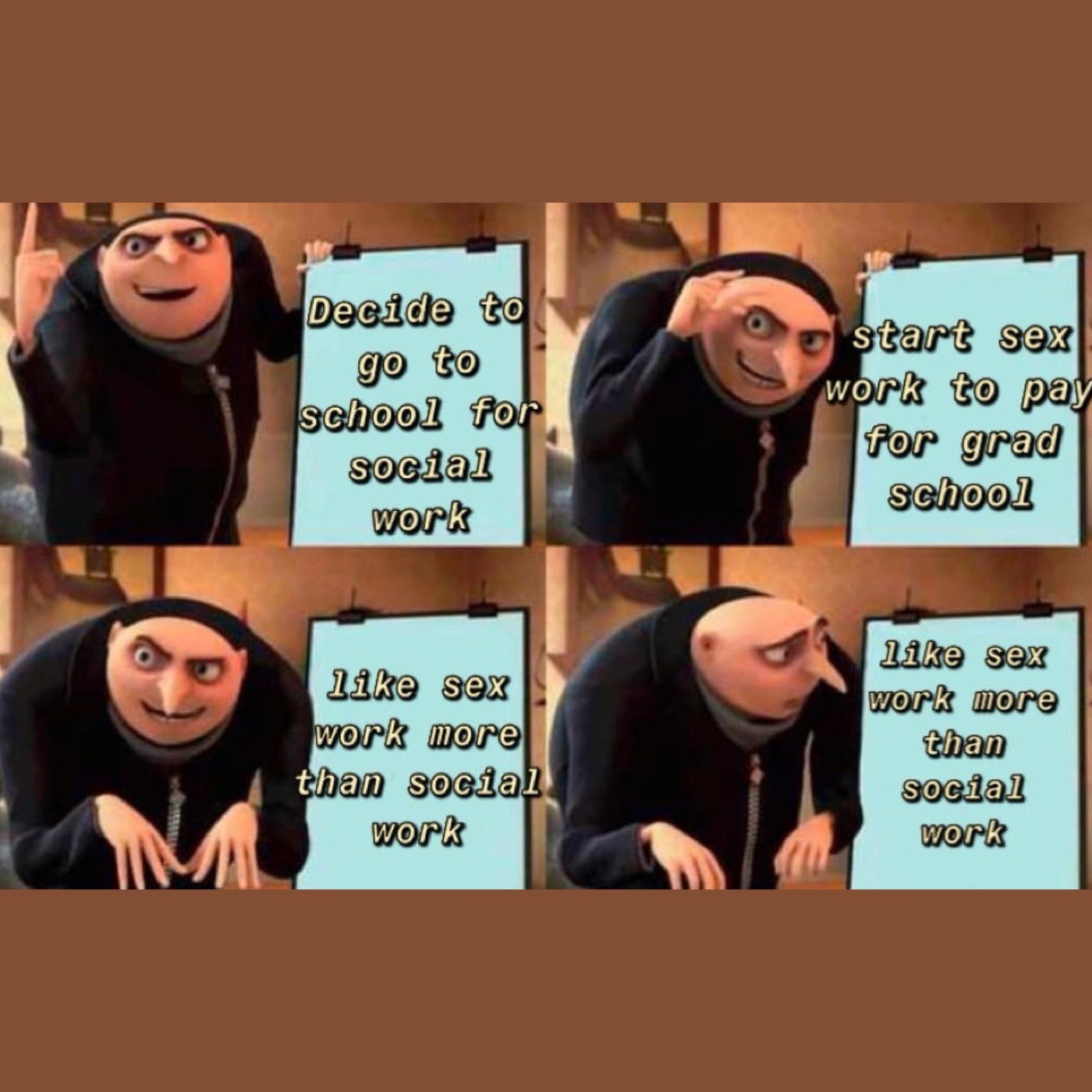


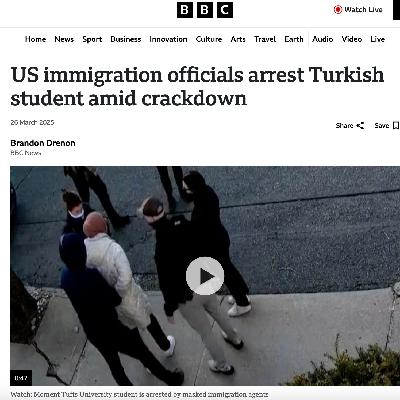
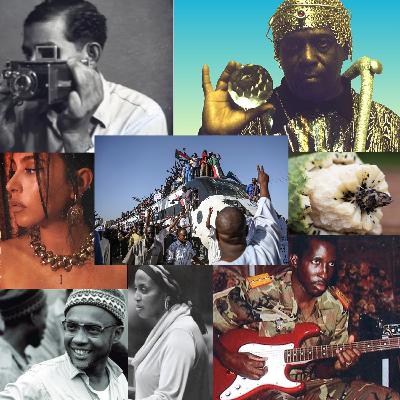
![Notes on the Moment [02.02.2025] Notes on the Moment [02.02.2025]](https://media.redcircle.com/images/2025/2/3/21/7f8980b1-87ed-4168-b022-cc14a148cff5_threadings_artwork_updated.jpg)
